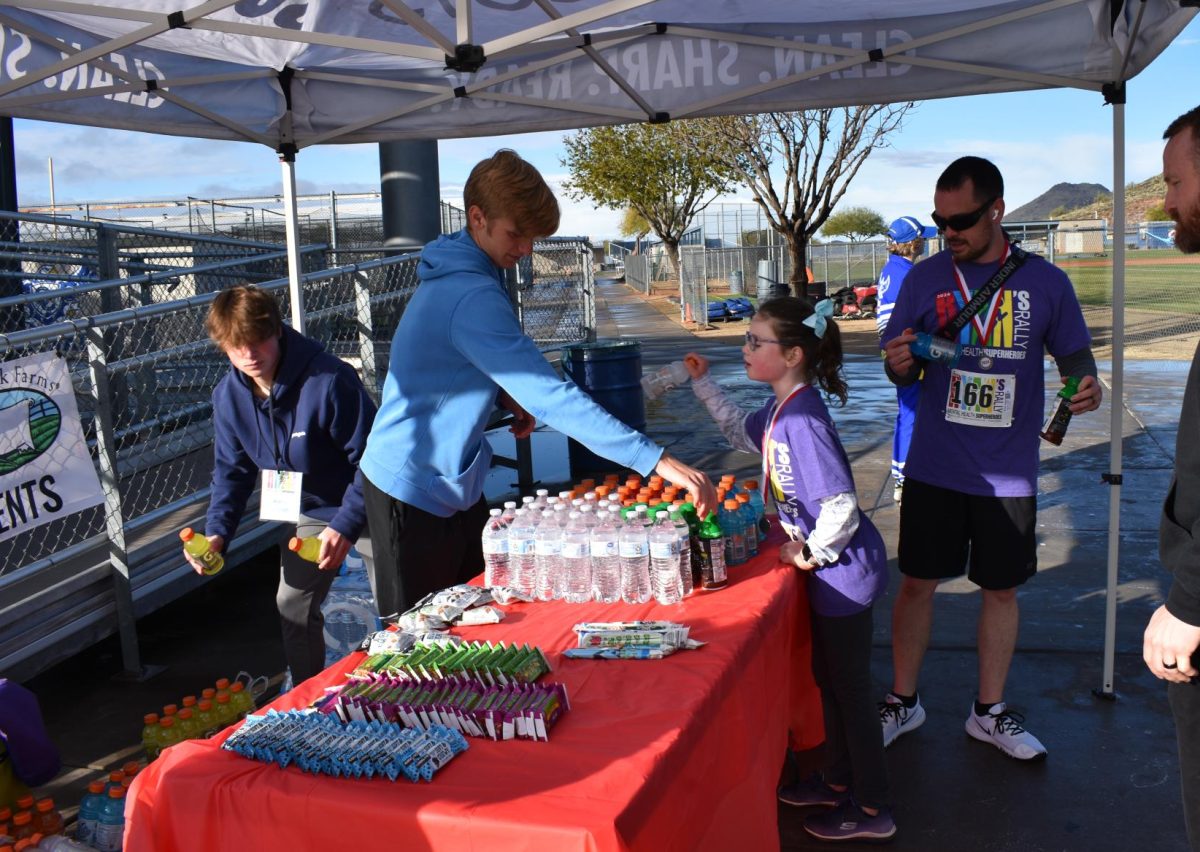Volunteering is a vital aspect of community. Donating one’s time and labor fosters tangible and effective change; however, it is experiencing a shift in culture, particularly in schools.
The issue arises when teenagers treat volunteer hours as a checklist, and do not acknowledge the groups that they affect. There are people with their own complex lives behind these numbers. Students may begin to volunteer with the mindset of boosting an application, but one’s outlook can evolve.
“I feel like in this age, there’s still a lot of the mindset that we need this for college, but once you really start to get out into your community and you start to meet those people, that’s when you kind of realize the impacts,” said Elena Murrietta, junior.
The moral question that emerges is the balance between intention and impact.
“In the end they’re still putting in work and volunteering. So hopefully, there are still people that are getting the benefits of that, even if they have alternative motives they’re still helping someone by just doing the work,” said Carrie Anderson, math teacher and NHS sponsor.
Nevertheless, there are certain situations where sensitivity to others and being cognizant of reasons why causes or organizations require assistance matters.
“If you’re volunteering extremely hands on with children, volunteers, single mothers, groups like that, I think your intention is extremely important to make sure that you’re passionate about what you’re working for, that you understand them, that you’re In the right mindset to be working with those groups,” Murrietta said.
The solution is researching opportunities that align with one’s values and distinctive interests.
“Finding something that you identify with and that you really love doing, I think encourages them to continue doing it once they get to college and after college,” Anderson said.
Through networking, people become aware of the various facets of volunteer work and service opportunities.
“We all have different things that we care more specifically about. Through talking to others and discussing with people that you meet, often they’ll tell you about other things happening or that they’re also involved in,” said Maehur Aulakh, senior.
Volunteering does not just come to the aid of communities, but rather results in creating them.
“I met people who have the same interests. You realize that you share the same values…It allows us to build a tighter community, and allows groups to become closer when they’re able to make volunteering memories together and able to share those experiences and opportunities,” Murrietta said.
At OHS alone, entire clubs, such as Go Green and the Society of Female Scholars, have formed around volunteering; positive engagement is a priority.
“We don’t want our club culture to be something that we’re pushing onto people because at the end of the day why are you doing it if it’s just a chore for you or something that you’re not wanting to do. By doing that we actively engage our members,” Aulakh said.
Though numerous teenagers also work jobs and may struggle to consistently volunteer, many places are flexible. A simple and occasional hour of help is still beneficial.
“It’s just finding supervisors that can kind of pair you with your needs, if you’re interested in joining with a volunteer community. If you don’t want to work regular volunteer hours then there’s always one stop volunteering like at the food banks or some farmers markets,” Murrietta said.
Even if college is not an avenue one is interested in pursuing, volunteering still allows people to experience new things and discover what they are passionate about.
“I think a lot of students do understand the benefit of diversifying their experiences while they’re in high school because I think in the long run it will help them kind of decide what they want to do in their life path,” Anderson said.
Seniors are in a unique position and prove that once one starts volunteering, they tend to stay motivated because they are integrated into a community.
“When you’re with a group, you have to think about the group. For me to be done with college applications, I’m still a part of these groups,” Aulakh said.
There is no denying that volunteering is a factor colleges consider, however it may not be for the reason students believe.
“Colleges are not just looking for someone who can get straight A’s and good test scores. They’re looking for someone who has life experiences that they can take with them to college and continue to contribute to the college community as well,” Anderson said.



